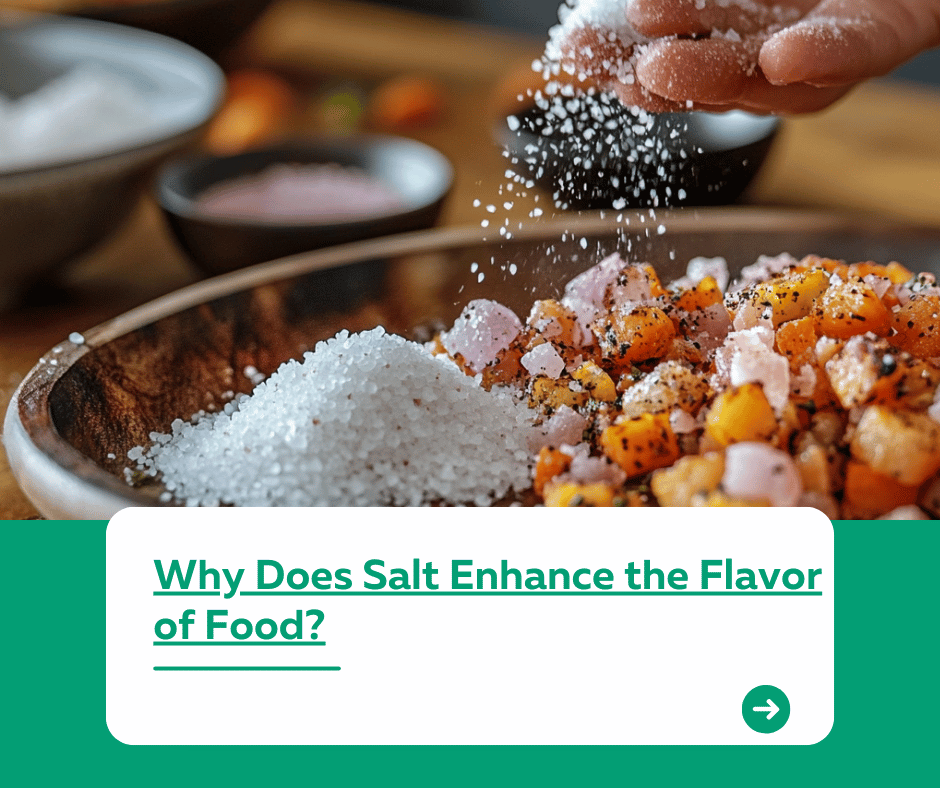
Introduction
Salt is a staple ingredient in almost every kitchen around the world. But have you ever wondered why does salt enhance the flavor of food so effectively? Beyond simply being salty, salt has a unique ability to elevate other flavors, making dishes more delicious. In this article, we’ll explore the science behind salt’s flavor-boosting power and how to use it effectively in your cooking.
1. The Science of Salt and Taste
Salt plays a crucial role in enhancing flavor by interacting with our taste buds and food compounds:
- Taste Bud Activation: Salt stimulates the taste buds, enhancing our perception of sweetness and suppressing bitterness.
- Chemical Reactions: Salt interacts with food molecules, drawing out moisture and unlocking hidden flavors.
- Flavor Amplification: It intensifies other flavors, making them more pronounced and balanced.
2. How Salt Suppresses Bitterness and Enhances Sweetness
One of salt’s most remarkable qualities is its ability to suppress bitterness. For example:
- A pinch of salt can make bitter vegetables like kale or broccoli taste milder.
- Salt enhances the natural sweetness of fruits, caramel, and baked goods by balancing flavors.
3. Salt’s Role in Different Cooking Processes
Salt isn’t just about taste—it also plays a functional role in many cooking techniques:
- Seasoning Meat: Salt penetrates protein fibers, tenderizing meat and enhancing its flavor.
- Baking: In bread, salt regulates yeast fermentation and strengthens gluten.
- Preservation: Salt acts as a natural preservative, preventing spoilage in foods like pickles, cured meats, and cheeses.
4. Types of Salt and Their Uses
Not all salts are created equal. Here are some common types and how to use them:
- Table Salt: Best for everyday seasoning and baking.
- Sea Salt: Adds a more complex flavor and is great for finishing dishes.
- Kosher Salt: Ideal for cooking and seasoning meat due to its coarse texture.
- Himalayan Pink Salt: Often used for aesthetic and mineral content in gourmet dishes.
5. How to Use Salt Wisely
While salt enhances flavor, too much can overpower a dish. Follow these tips for perfect seasoning:
- Season Gradually: Add small amounts of salt throughout the cooking process and taste frequently.
- Layer Your Seasoning: Salt each component of a dish for balanced flavor.
- Finish with a Sprinkle: Use finishing salts like sea salt or flaky salt to add texture and a burst of flavor.
Conclusion
Salt does more than just make food salty—it’s a powerful flavor enhancer that balances and amplifies other tastes. Understanding its role in taste, cooking processes, and seasoning techniques can help you elevate your dishes. For more cooking tips and insights, visit our kuestion.co.